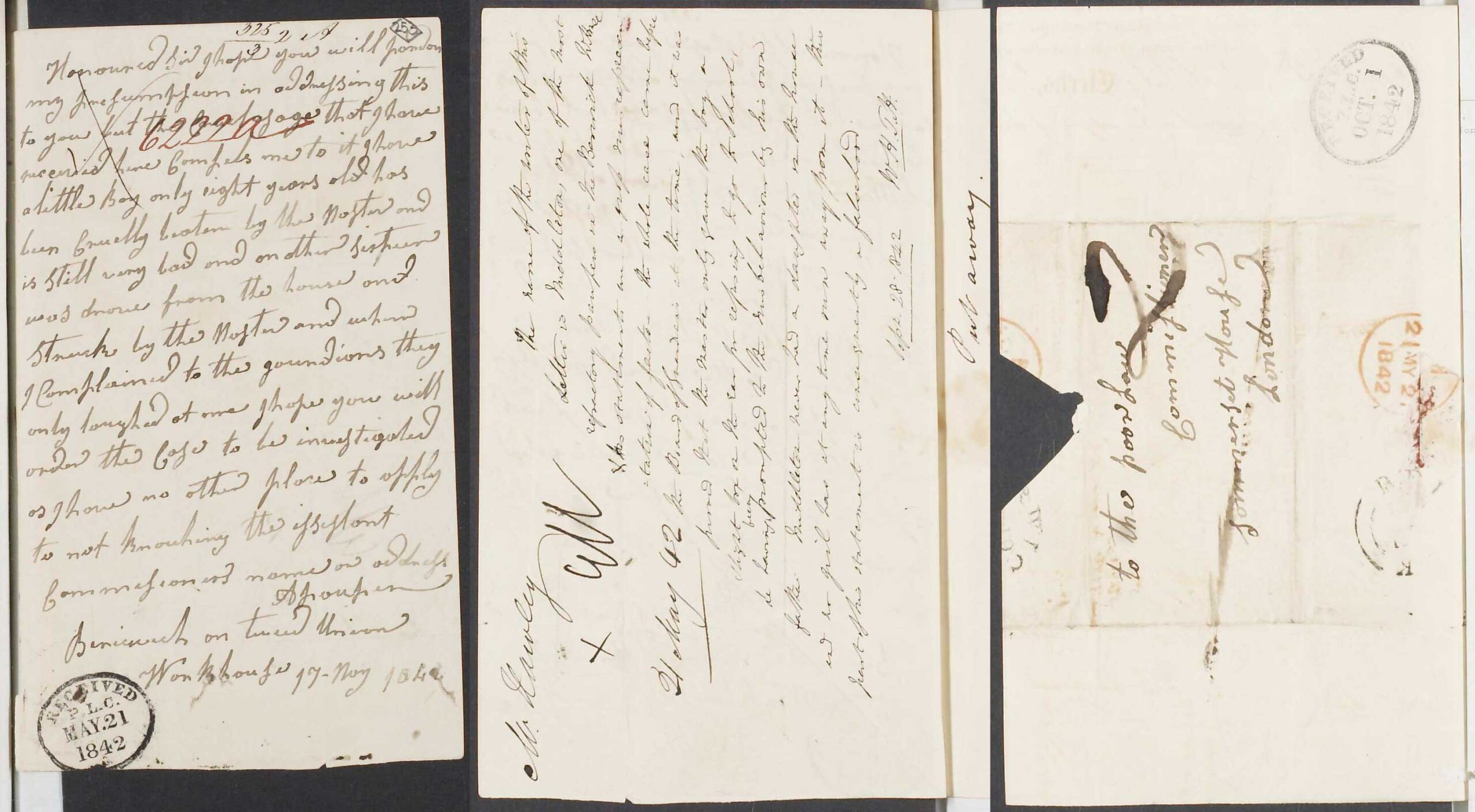
Archive and reference: The National Archives: MH12/8977/164, 6222/A/1842
Date of letter: 17 May 1842
CIRCUMTEXT:
The name of the writer of this Letter is Middleton, one of the most refractory paupers in the Berwick Workhouse & his statements are a gross misrepresentation of facts. The whole case came before the Board of Guardians at the time, and it was proved that the master only gave the boy a slight box on the ear for refusing to go to school, he having ^been^ prompted to the misbehaviour by his own father Middleton never had a daughter in the house and no girl has at any time run away from it – this part of his statement is consequently a falsehood
Sept. 28 1842 W.H.J.H.
TEXT:
Honoured Sir I hope you will pardon my presumption in addressing this to you but the [***********] that I have reseived here Compels me to it I have a little Boy only eight years old has been Cruelly beaten by the Master and is Still very bad and another sister was drove from the house and Struck by the Master and when I Complained to the guardians they only laughed at me I hope you will order the Case to be investigated as I have no other place to apply to not knowhing the assistant Commisioners name or address
A pauper
Berwick on tweed Union
Workhouse
17 May 1842
Document 5 – Letter. An interesting one where the complaint may not be all that it seems!
- What punishments does the child or children receive in the workhouse?
- The pauper claims that an 8 year old boy, and a girl, have been beaten by the School master.
- What rules are being broken by workhouse staff?
- Not exactly clear – if the girl has been beaten than that would break the rules. It may be that the punishment on the boy would be deemed excessive, possibly an instrument was used (not clear).
- What does the evidence suggest about workhouse staff?
- The staff did issue punishments for misbehaviour (the Master has admitted to this) – but this was within the rules for boys. Shows that the staff were often clear about what the rules were.
- What does the nature of the evidence reveal about authorities?
- The guardians sought out incorrect claims or ‘falsehoods’. According to historian David Roberts (in his article ‘How Cruel was the Victorian Poor Law? Historical Journal (1963), “both real and imaginary tales of cruelty” were often told.
